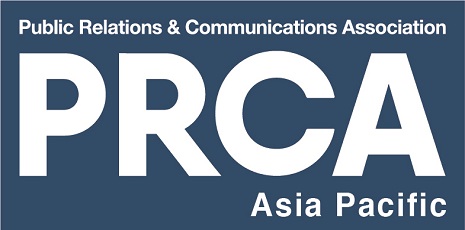
Singapore, 9 October 2020 – In tandem with World Mental Health Day, a new study by Sandpiper Communications finds those in Generation Z (Gen Z) across Asia Pacific (APAC) are putting on a brave face amid COVID-19, with most focusing on betterment but still struggling to talk about their mental health, despite rising pressures.
Titled The Brave Face of Gen Z, the study is based on a survey of 1,226 Gen Zs (aged 18 to 24 years) across APAC in Australia, China, Hong Kong and Singapore.
It reveals 73% of Gen Zs across APAC are experiencing elevated stress levels due to COVID-19, and 57% say their mental health has worsened. Additionally, nearly four in five (79%) face overwhelming stress monthly or more frequently, with 28% experiencing this weekly and 11% daily.
However, in spite of this, only 41% of Gen Zs across APAC are comfortable talking about their mental health.
Family and the Economy the Greatest Sources of Pressure
When looking at the sources of overwhelming stress for Gen Z across APAC, family pressures (65%) followed by career pressures (48%) and relationships with friends (41%) rank highest.
Furthermore, the study finds the economic and lifestyle impacts of COVID-19 have had a more negative effect on the mental health and wellbeing of Gen Z than health-related ones.
71% of Gen Zs say the economic fallout of COVID-19 has negatively affected their mental health and wellbeing, followed by travel bans at 68%. These rank ahead of concerns about friends and family being infected with COVID-19 (62%) or themselves being infected (58%).
The Social Dilemma
During a crisis, having access to social media has been seen as both a blessing and a curse for Gen Z. Across all markets, while nearly one quarter (24%) say social media has helped their mental health and wellbeing during COVID-19, more than one third (34%) feel it has had a negative influence.
Of those who believe social media has had a positive impact, 69% attribute this to being able to connect with family and friends. Two in three (66%) feel social media has been a source of distraction to pass time, with 66% citing increased boredom during COVID-19.
Interestingly, of those who feel positively, 59% say this is because it is a source of news for them. However, the influx of negative stories (61%) on social platforms is also the biggest reason Gen Z in APAC cite for believing social media access has negatively affected them.
Additionally, of those who feel negatively, close to half (48%) across APAC say the lack of real connection with friends and loved ones has in fact worsened their mental health and wellbeing. Almost two in five (38%) also expressed that social media has inadvertently pressured them to be constantly “busy” despite feeling negative about the pandemic situation.
Focusing on Betterment
Despite the increased pressures on mental health and wellbeing during COVID-19, a culture of betterment is seen with Gen Zs making responsible decisions about their future and many seeking professional support where needed.
When asked about how the pandemic has altered their future plans, close to half (46%) have increased their focus on savings. Almost one-third (30%) have also increased their commitments to studying and decided to learn a new skill during this period.
Emma Smith, Chief Executive Officer, Sandpiper Communications, said:
“Our young people are among those who have been the most impacted by COVID-19, and they will need to live with the huge social and economic impacts for many years to come during the prime of their lives and careers. As we mark World Mental Health Day, it’s important we understand how the pandemic is affecting them and what opportunities exist for better communication and support.
“It is concerning that despite Gen Zs suffering increased mental health and wellbeing pressures during COVID-19, they still struggle to talk about these issues. While the increasing focus on betterment can be seen as a positive outtake from COVID-19, there’s also a risk that without strong communications, openness and transparency around mental wellbeing, it may mask deeper issues.”
-END-
Methodology
The Brave Face of Gen Z is a study conducted by Sandpiper Communications to better understand the impact of COVID-19 on the mental wellbeing of Gen Zs. A total of 1,226 respondents between the ages 18-24 were interviewed online in September 2020 across four markets in Asia Pacific, including Australia (302), China (309), Hong Kong (306) and Singapore (309).
About Sandpiper Communications
Sandpiper is a strategic communications consultancy based in Asia Pacific and operating globally. Our team are trusted advisors to industry leaders and market disruptors. We combine strong regional market understanding with global perspectives. Our deep specialist knowledge in the health, technology, finance, professional services, consumer brands and energy and environment sectors ensures we understand the challenges our clients face, can think creatively about their issues, and shape communications to achieve their business goals.
Operating with one global P&L, we are nimble, creative, and able to harness new technologies to deliver advisory backed by rigorous research and deep insights. This enables us to meet the evolving needs of our clients quickly and effectively wherever they are in the world.
To find out more about Sandpiper Communications, please visit www.sandpipercomms.com
For more information, please contact:
Amy Shea
+852 9520 5606
Amy.Shea@sandpipercomms.com
Denise Beh
+65 9618 5119
Denise.Beh@sandpipercomms.com
Iris Ng
+65 9477 8807
Iris.Ng@sandpipercomms.com

